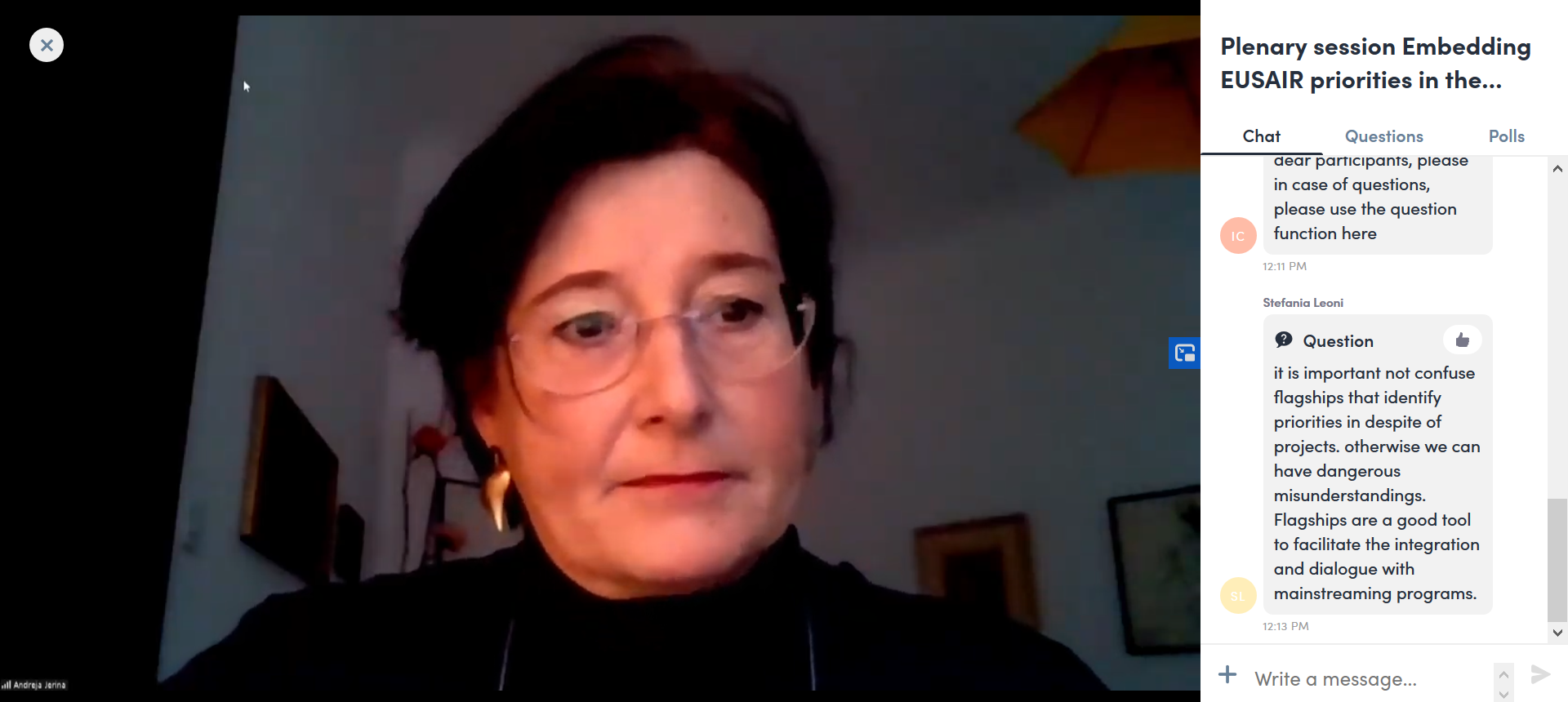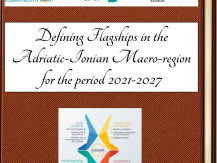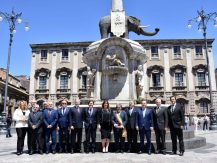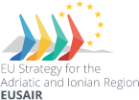Plenary session: Embedding EUSAIR priorities in the post-2020 funding instruments and support for enlargement
At the beginning of the session Ilze Ciganska emphasized that EUSAIR was built on cooperation of the larger territorial impact. In order to achieve the long term objectives in this region, the countries had jointly identified a set of priorities called flagships. Those show the direction for the cooperation investments in the period 2021-2027.
Andrea Jerina, EUSAIR National Coordinator from Ministry of Foreign Affairs in Slovenia, pointed out that the Adriatic-Ionian Macro-regional Strategy and also the Danube Strategy, in which Western Balkan countries play an important role, were basically the functioning policy and cooperation frameworks, that could significantly foster implementation of regionally agreed processes on the ground.

Macro-regional Strategies act as a bridge between the EU, national, regional and local policy making. They can also be seen as a vehicle, that is ready to facilitate and deliver implementation of the EU initiatives, including the Economic and Investment Plan for the Western Balkans. And all these could be achieved through the process of the embedding. As the Macro-regional Strategies do not have their own financial recourses, the start of the current programming period presents the best opportunity for all Macro-regional Strategies to bridge the gap between their needs and the funding opportunities.
The following speaker was representing the Presidency of the Council of Ministers in Italy, Ivana Sacco, and she stated: “We are convinced that in order to achieve objectives we need to take key implementers on board, both at EUSAIR and national level. A coordination of key implementers is important for different reasons - they need to understand that embedding is part of a broader and coordinated process that involves all the countries of the area.”
Lodovico Gherardi from the Managing Authority of ADRION Programme, Emilia-Romagna Region in Italy explained how to adopt a smart multi-scalar approach and what could be ADRION’s focus in the future programming period in terms of thematic covered.
Massimo Mina, Strategy and Turkey, MFF, Programming and Evaluation Unit, DG for Neighborhood and Enlargement Negotiations, European Commission, recognizes a responsibility of each of the IPA 3 beneficiaries in making sure that the priorities and the flagships of the EUSAIR were reflected in the strategic responses. Only that way, part of the IPA 3 funds could be allocated to the actions that serve at the same time the national and the macro-regional objectives under the different thematic windows of the programming framework. European Green Deal is the first political priority of the European Commission and it includes a strategic reference to the Green Agenda in order to support the transition of the IPA beneficiaries towards a circular climate resilient and low carbon economy.

Next speaker Aleksandra Radinović, Head of Division for Planning and Programming of EU funds and Development Assistance in Areas of Economic, Infrastructure, and Regional Development, Ministry of European Integration in Serbia focused more on connectivity projects. In her opinion the regional approach for the connectivity project was of really high relevance for the transport and energy sectors, as having an efficient transport network means that a country can cooperate with its neighbors. In the light of the Economic and Investment Plan for the Western Balkans, the Republic of Serbia proposed 12 projects in the total amount of 1.5 billion €. The proposed projects mostly relate to the EUSAIR Pillar 2 – Connecting the Region (Transport and Energy Networks subgroups) and 7 of them are marked as flagship projects within the European Economic and Investment Plan for the Western Balkans.
Bojana Zorić, Senior Policy Analyst, Regional Cooperation Council pointed out that the lesson of the year 2020 is about continuation of the regional cooperation no matter the obstacles. The hardships experience in the face of the pandemic last year, in a way, only gave an impetus for the Western Balkans to go beyond the existing frameworks of cooperation and do more. And it was also the pandemic that reaffirmed unwavering support of the EU for the Western Balkans, as integral part of Europe, which later on resulted in the mentioned Economic and Investment Plan
Eleni Marianou, the Secretary General of the Conference of Peripheral Maritime Regions estimates the way EUSAIR set the framework for action, as a good way forward.
The central point of this discussion was the finding that the only missing elements to secure finances were coordinated efforts and inclusion.
You might be interested in

EUSAIR flagships all summed up!

3rd EUSAIR Annual Forum – CATANIA DECLARATION

The Hellenic Republic assumes the Presidency of the EU Strategy for the Adriatic and Ionian Region (EUSAIR) (1 June 2024 – 31 May 2025)








